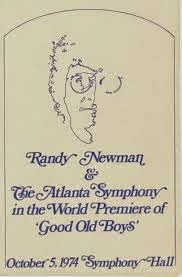“Elvis Bows, Bing
Just Nods”:
High and Low
Culture in Fancy Meeting You Here
Gilbert L. Gigliotti
Central Connecticut State
University
On Fancy Meting You Here, his 1958 duet album with Rosemary Clooney,
Bing Crosby offers a trenchant critique of the coarsening of American
culture. From Crosby’s own liner notes
to many of the special lyrics written by Sammy Cahn and Ira Gershwin, among
others, the musical travelogue offers listeners a crash course in late-fifties
pop culture while exposing the incipient fissure between young and old that
would become the “generation gap” the following decade.
The RCA-Victor album (LSP-1854), a
collection of thirteen geographically-themed songs, including “On a Slow Boat
to China,” “Hindustan,” “You Came A Long Way from St Louis,” “Isle of Capri,”
and “Calcutta,” was recorded during three sessions on July 28th,
August 7th and 11th, 1958. It was based, according to the record jacket,
upon an idea by songwriters Sammy Cahn and Jimmy Van Heusen,
and serves as a de facto sequel to
Frank Sinatra’s best selling album Come
Fly with Me,
released by Capitol Records in February of that same year, its title track also
written by Cahn and Van Heusen, and also arranged and conducted by Billy May,
the former trumpeter and arranger for Charlie Barnet and Glenn Miller (Rice;
Whitburn 282).
As on the Sinatra album, May’s
arrangements on Fancy Meeting You Here
are sonically rich and very witty, all the while taking full advantage of the
possibilities of stereophonic recording technology. As jazz saxophonist Buddy Collette describes
May’s work with Sinatra during the same period:
[He] would try things. He might put in little songs, start a
little melody and work that way
through the whole chorus, and
Frank would like that because it
was different. Billy May was
very inventive…he’d be putting
the song into the background
and voicing it, which would work
against the chords…(Granata 135).
May’s
last minute arranging was infamous, while, at the same time, being well
recognized for his fresh orchestrations, or, as drummer Alvin Stoller phrased
it: “Billy wrote with meat” (Granata 135).
Indeed, May’s “meaty” presence, both musical and physical, is hard to
ignore on almost all of his recordings.
On Fancy Meeting You Here, in
fact, Cahn especially mentions him in the final cut of Side I, “Love Won’t Let
You Get Away,” when, commenting about the many songs that await listeners on
Side Two, Bing and Rosie sing:
Rosie: Here comes another side
Here we go for that tourist ride
Bing: Lots of places we haven’t tried
Seems the world’s as wide as
Billy May!
In
short, May’s remarkable size and talent make listeners marvel even at what
should be quite obvious (the mass of Earth itself), just as his arrangements
make such standards as “Hindustan” (1918), “It Happened in Monterey” (1930),
and “Isle of Capri” (1934) seem as fresh as the year they were composed.
Not surprisingly, given both the
previous pairing of Crosby and Clooney in the 1954 movie hit White Christmas and, since Rosie was a
favorite singing partner of Bing because “their vocal range and esprit were a
perfect match” (Giddins 513), the singers’ performances consistently equal
May’s arrangements in wit, warmth, and exuberance. Bing, after all, as Gary Giddins writes in
his landmark biography A Pocketful of
Dreams, was “never more honestly or affably himself than in duets,” a
format he used “more frequently than anyone else – on records, radio, and
television” (Giddins 513). And, as
Giddins further describes it, Bing preferred duets because the format presented
him with:
…a challenge, like golf,
with a modified degree of competition.
He was as generous to
other singers as to fellow actors, and his
supreme confidence relaxed and
inspired them. The laughter in
a Crosby duet was never scripted,
while the scripted material
often sounds improvised; it is
generally impossible to tell how
much was planned. (513)
The Crosby/Clooney duets on Fancy Meeting you Here fit this
description perfectly. On “Isle of
Capri,” for example, Rosie’s reading of “that Capri isle was a real ringer-dinger” sparks an audible giggle
from Bing. Similarly, both in the
opening of “You Came a Long Way from St. Louis,” when Bings suggests that
someone knit Brigitte Bardot a “hug-me-tight” so she won’t “catch her death of
a cold” and, in “Calcutta,” when he refers to a snake as a “Hope double,” his
line readings tickle Rosie not a bit.
Of course, another explanation for
the spontaneity of Clooney’s reactions could be that Bing’s script did not read
exactly as Rosie’s did, since, from early in his radio career Crosby was well
known for altering his lines specifically to surprise his guests and
interlocutors (Giddins 411). The “Hope
double, y’know,” line seems especially tossed off, for example.
Such verbal playfulness is also a
hallmark of Sammy Cahn’s “special lyrics,” a forte of his songwriting career.
For Cahn, perhaps best known as the songwriter “who put more words into
Frank Sinatra’s mouth than any other man”(Cahn 129), also was well known
throughout the entertainment industry for his “special material:” lyrics
written to the tunes of popular standards specifically for different events
across the musical, personal, and political spectrum. Cahn’s occasional lyrics were in high demand
due to his ability to reflect the personalities and interests of the individual
performers who would sing his words – not to mention his ability to include a
remarkable number of “inside jokes,” as well.
Within the songs of Fancy Meeting
You Here, for example, we hear mention of Crosby’s being a stockholder in
the Pittsburgh Pirates, Rosie’s attraction to Marlon Brando, (“How About
You?”), Bing’s earlier incarnation as a crooner (“Brazil”),
and how absolutely everyone eats at “Dino’s,” Dean Martin’s restaurant “back on
the strip in L.A.”(“Isle of Capri”).
More intriguing, however, to this
listener, is how the album uses Crosby’s well-wrought persona to reflect what
can now be identified as the developing split between the Browkavian “greatest
generation” and their offspring, the baby boomers. That persona, in turn, mirrors two
significant aspects of Bing’s background: the classical education Crosby
received from the Jesuits in high school and college and his lifelong love of
language and wordplay.
Crosby benefited from being “the
only major singer in American popular music to enjoy the virtues of a classical
education,” because his education, according to Giddins:
…grounded his values and
expectations, reinforc[ed] his
confidence, and buffered him from his own
ambition. [For]
as faithful as he was to show business, his demeanor
was
marked by a serenity that suggested an appealing
indifference.
He had something going for him that could not be
touched by
Hollywood envy and mendacity…The Jesuits trained him
to
weigh the rewards of this world versus those of the
next and to
keep his own counsel (56-57)
Indeed,
at least two songs from Fancy Meeting You
Here make much of Bing’s long-standing stardom and success and his
self-deprecating attitude toward it, “You Came a Long Way from St. Louis” and
“I Can’t Get Started.”
In the opening recitative of “St.
Louis,” [originally written in 19??,] Rosie comments on Bing’s frequent press,
his royal treatment, and even his sex symbol status, all of which Crosby
blithely, and quite believably, dismisses as wrongheaded and silly:
Bing
has it all, but he is grounded enough to know not to take it seriously and,
moreover, one’s health should always win out over fashion (no matter how
attractive the look!).
Likewise, in the new Ira Gershwin
lyrics to “I Can’t Get Started”
even as Bing declares how much power he wields in the world (by comparing
himself to the most recent musical icon), there is an inescapably self-effacing
quality that shines through his performance of the lyric:
Good grief, I’m not exactly a
clod.
When Elvis Presley bows I just
nod…
Bing’s credibility here rests on
his more than three decades of stardom in recording, radio, and film,
without his having forfeited the “well-entrenched image of the ‘American
Everyman’” living a life of decency and decorum (Brackett 61). The Jesuits, it would seem, had trained him
well.
As a good student of the Jesuits,
Crosby viewed his position at the top of the entertainment world as a uniquely
privileged and powerful pulpit – even as he gently played off the priestly
image – in support of “scholastic progressiveness” and “liberal benevolence”
(Giddins 55, 558). For example, the
title of an article in the February 1938 issue of Down Beat, which recounts many of Crosby’s good deeds towards his
friends in show business, captures these twin concerns: “Bing Crosby (Dr. of
Square Shooting) Known as Squarest Man in Hollywood” (Giddins 456).
In 1958, Crosby was perhaps still
the squarest man in Hollywood, but on Fancy
Meeting You Here, the juxtaposition of Bing, “The Old Groaner,” and “Elvis
the Pelvis” now underscores the cultural divide between the singer and a
younger generation in many ways in need of redemption. For his message on the album’s back cover,
(accompanied by a world map with international locations pedagogically keyed to
the album’s playlist), depicts the record buying public, i.e., “the cats
closeted in the listening cubicles,” as decidedly young, libidinous, and only
semi-literate. He even includes the
recurrent lament that the kids “these days” just don’t read anymore, so anything
that gets them reading – even liner notes! – is “eminently desirable.” The singer, meanwhile, confesses to visiting
these same record stores only to buy “something atonal by Hindemith, something
sassy by Schoenberg, or something with a beat by Bartok,” intimating through
those familiar adjectives that much of the American popular music usually
described in such language interests him not.
Indeed, in response to such
cultural trends, he admits the travelogue concept of Fancy Meeting You Here could be quite “salutary” for American
record buyers who, when they are not “wrapped up in the reading matter featured
on the album jackets,” are “wrapped up in one another” in the listening
booths. As he instructively continues:
With the accompanying map some geography
could be
absorbed. A careful selection of songs could reveal the
mores of the places visited, the
transportation facilities
available, the mean climate, etc.
Long
before the term was invented, Crosby here is promoting the “teachable moment.”
The singer himself, however,
immediately discounts such “educational entertainment” as sounding “pretty
stuffy” and proceeds to highlight a variety of factors (Rosie’s voice and
humor; new lyrics by Cahn, Gershwin, and Bob Russell; and even brand new songs)
that prevent the record from turning, in Bing-speak, into “a complete cruller.”
Still, at notes’ conclusion, his schoolmasterish voice returns, invoking, as it
were, Horace’s admonition in the Ars
Poetica that good literature should both please and instruct (Epistles II.iii.333-334):
…remember—study the map while
listening. It’s very engrossing.
Comically portrayed or not,
Bing’s didacticism seems obvious throughout the album, as the singers take aim
at many fads. Crosby and Clooney’s
updated rendition of “It Happened in Monterey,” for instance, lampoons the
annoyingly repetitive cha-cha beat and its eponymous dance craze and pre-dates
the more famous Sam Cooke parody “Everybody Likes to Cha-Cha,” which went to
#31 in 1959 (Pareles and Romanowski 119).
After briefly running through the standard chorus and verse, they sing:
That was the way they used to
play,
But here’s the version you’ll
hear today:
They cha-cha-cha’d in Monterey/ A
long time ago
They cha-cha-cha’d in Monterey/
In old Mexico
The
song, in short, asks the musical question, even punctuated with a comical
trombone burp at its conclusion: how can anyone not be heartbroken at such a
rendering?
Similarly, that the tourist
couple is driven off “The Isle of Capri” not by fate or the fear of commitment
but by the ubiquity of stale mandolin arrangements and bad pasta dishes cannot
but be seen as pessimistic harbingers of the future of pop culture. The rhyming of “Capri” and “misAPPREhension”
is quite telling, after all.
But it is not simply the sorry
state of contemporary music that is problematic in the corrupted rendering of
“It Happened in Monterey,” it is also the literary decline reflected in the
dumbed-down lyrics. For Crosby was well
known from his youth for his playfulness with language, and he fostered his
linguistic fun on radio and in film. As
Giddins writes:
His way with words, not just his
singing and whistling,
helped define Bing’s
personality…He rolled large words
on his tongue, trilled rs, fiddled with malapropisms and
spoonerisms, and mimicked the
lower, upper, and outcast
classes, exemplified in minstrel
badinage or highfalutin rhetoric. (63)
Bing
performs thus in his liner notes:
And then to make it as gilt-edged
as a sheaf of municipals,
[producer Simon Rady] dropped the
whole project into the
ample lap of that Falstaff of the
arrangers, that Rabelais of the
rolling bass – “The Merry
Maestro,” Billy May.
As
a singer, language was his primary medium, and what was happening to lyrics at
the hands of rock-and-roll had to be disheartening. The literate lyrics of Tin Pan Alley writers
were under assault and demanded worthy defenders, and he and his collaborators
here answer the clarion call.
In 1958, there was no doubt who
this company of artists thought would win out. Indeed, Fancy Meeting You Here concludes on a decidedly confident note when
Crosby declares to both Clooney and the public:
My little chickadee,
You may say that you’re through
with me
You’ll have no more to do with me
You’re all through with me and
good day
But you’ll find that love won’t
let you get away
Record
buyers may think their relationship with Bing is over, but, he assures them, it
is not.
More than forty years later,
however, a striking allusion to Verdi’s “Anvil Chorus” from Il Trovotore, in “On a Slow Boat to
China” perhaps rings truer. When, in
response to Rosie’s line about the crowd of suitors she will leave “weeping on
a faraway shore,” Bing exclaims “Somebody get me an anvil!” The listener senses that the hammer Bing
figuratively wields in the song is grandly operatic indeed, both a musical
instrument and a weapon of the gods. As
history tells us, this powerful weapon that Crosby had brandished for decades
was to be his only a short time longer.
For while Bing still may have been treated “like the monarchs of old,”
Elvis was now the King.
Works Cited
Bennett,
Charles and John Rolfe, eds. Horace: Complete Works. Boston: Allyn and
Bacon,
1962.
Brackett,
David. Interpreting Popular Music.
Cambridge: Cambridge University Press,
1995.
Cahn,
Sammy. I Should Care: The Sammy Cahn Story. New York: Arbor House, 1974.
Crosby,
Bing. “Liner Notes.” Fancy
Meeting You Here. LSP-1854. RCA, 1958.
Giddins,
Gary. Bing Crosby: A Pocketful of Dreams The Early Years 1903-1940.
Boston:
Little, Brown, and Company, 2001.
Granata,
Charles L. Sessions with Sinatra: Frank Sinatra and the Art of Recording.
Chicago:
A Cappella Books, 1999.
Hardy,
Phil, and Dave Laing. The Faber Companion to 20th-Century
Popular Music.
London:
Faber and Faber, 1990.
Pareles,
Jon, and Patricia Romanowski, eds. The Rolling Stone Encyclopedia of Rock
and Roll.
New York: Rolling Stone Press/Summit Books, 1983.
Rice,
Robert W. “Rosemary Clooney.” Clap
Your Hands Here! Comes Rosie/Fancy
Meeting You Here.
TARCD-1060. Taragon Records,
2000.
Ulanov,
Barry. The Incredible Crosby. New
York: Whittlesey House, 1948.
Whitburn,
Joel. The Billboard Book of Top 40 Albums. New York: Billboard Books,
1995.
Bing’s credibility is linked directly to his approach
to singing which is “disarmingly, almost nakedly, artless yet so artful that he
never shows his hand, never shows off his phrasing or his easy way of rushing
or retarding a phrase, never does any of the things singers do to show you how
hard they are working” (Giddins 512)


















